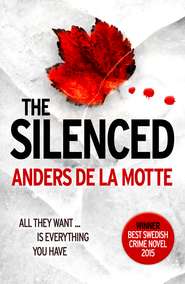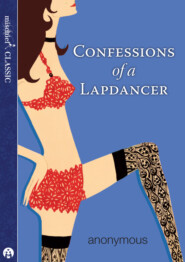По всем вопросам обращайтесь на: info@litportal.ru
(©) 2003-2025.
✖
Midnight Blue: A gripping historical novel about the birth of Delft pottery, set in the Dutch Golden Age
Настройки чтения
Размер шрифта
Высота строк
Поля
Chapter 23 (#litres_trial_promo)
Chapter 24 (#litres_trial_promo)
Chapter 25 (#litres_trial_promo)
Chapter 26 (#litres_trial_promo)
Chapter 27 (#litres_trial_promo)
Chapter 28 (#litres_trial_promo)
Chapter 29 (#litres_trial_promo)
Chapter 30 (#litres_trial_promo)
Chapter 31 (#litres_trial_promo)
Chapter 32 (#litres_trial_promo)
Chapter 33 (#litres_trial_promo)
Chapter 34 (#litres_trial_promo)
Chapter 35 (#litres_trial_promo)
Chapter 36 (#litres_trial_promo)
Chapter 37 (#litres_trial_promo)
Chapter 38 (#litres_trial_promo)
Chapter 39 (#litres_trial_promo)
Chapter 40 (#litres_trial_promo)
Chapter 41 (#litres_trial_promo)
Chapter 42 (#litres_trial_promo)
Chapter 43 (#litres_trial_promo)
Chapter 44 (#litres_trial_promo)
Chapter 45 (#litres_trial_promo)
Chapter 46 (#litres_trial_promo)
Chapter 47 (#litres_trial_promo)
Chapter 48 (#litres_trial_promo)
Glossary (#litres_trial_promo)
Afterword (#litres_trial_promo)
Suggested Further Reading (#litres_trial_promo)
Reading Group Questions (#litres_trial_promo)
Acknowledgements (#litres_trial_promo)
About the Author (#litres_trial_promo)
About the Publisher (#litres_trial_promo)
1 (#u18208c5c-ed08-5520-b19b-6e06bd01a38a)
De Rijp, March 1654
The funeral was a week ago and I still feel more relieved than anything else. I know that’s indefensible, that I should be grieving, but it’s impossible.
I stand with my arms folded, gazing out of the top half of the kitchen door at the fields and meadows surrounding the farm, but don’t really see them.
It should never have come to this. Looking back, I can’t understand what came over me that night. For years I’d thought of Govert as just another man from the village, not someone I paid any particular attention to. I never gave him much thought at all. Not that he wasn’t an attractive man, in a certain way he was. The first time I noticed him was at the village fair, when he pulled me up to dance and held me to him. I’d been drinking, of course I had been drinking, but not so much that I couldn’t hear his heavy breathing or feel his body pressing against mine, his muscular arms clasping me so tentatively.
With every turn our hips brushed and the grip with which he steered me through the other dancing couples tightened. It was an exciting feeling. I realised he was in love with me. The off-putting way he stared at me whenever we passed one another, with that furrowed brow of his, had been an expression of desire rather than disapproval.
Did I feel flattered by his attention? Had I turned down too many potential suitors in the hope of something better? Was I afraid of being a spinster all my days? Or was I in love at that moment?
When he took my hand in his and led me outside to a quiet corner of the orchard I didn’t protest.
Govert was happy when I finally told him, four months later, that I was pregnant, all set to marry me and start a family. As a widower of around forty and not without means, he was a fair prospect, even if he wasn’t what I’d pictured.
Not that there was much choice. One moment of madness at the fair, one moment of total lunacy, and my future was set. Gone was the chance to someday leave the village and begin a new life, gone were my dreams.
The worst thing was that I wondered what I’d even seen in him that night. Whatever it had been, the next morning it was gone too.
We were married a month later, and six weeks after that my pregnancy ended in a premature birth. The child, a boy, was stillborn. That was over a year ago too.
And now Govert himself is lying beneath the cold, dark earth. The only mirror in the house is turned to the wall and the shutters have been closed for weeks. Today I’m opening them again. I let the morning light stream in with a feeling of utter pleasure. The living room, which was packed with visitors for days, is eerily quiet. I’ve lived in De Rijp all my life, and the support of relatives, neighbours and friends is heart-warming. My in-laws were notably absent. They probably find it hard to accept that I’m about to inherit all of Govert’s property after one year of marriage. It’s understandable, but there’s nothing I can do about it. And God knows I earned that inheritance.
I allow my gaze to wander around the room, from the round table next to the window to the fireplace and the furniture I painted myself. Sunlight falls on the flagstone floor and brings a little warmth. Not much, it’s only the beginning of March. The smoke drifts along the beams hung with sausages and bacon and up into the loft, which is still half full of winter stores.
It’s strange to have the house to myself, but I have no time to take it in. There’s work to be done and now that Govert’s gone there’s even more than usual.
Although I have a maid and a farmhand, there’s plenty left for me to do. Every day’s the same. I milk the cows, feed the pigs and chickens, tend the vegetable patch, churn the butter and make the cheese. I use the remaining time to wash and mend clothes, spin and weave and, very occasionally, to paint.
Now and then, when I glance at the shiny surface of a copper kettle, I catch a glimpse of my mother, her braided hair under a white cap. She’s always busy, always tired. I’m twenty-five but I feel much older.











